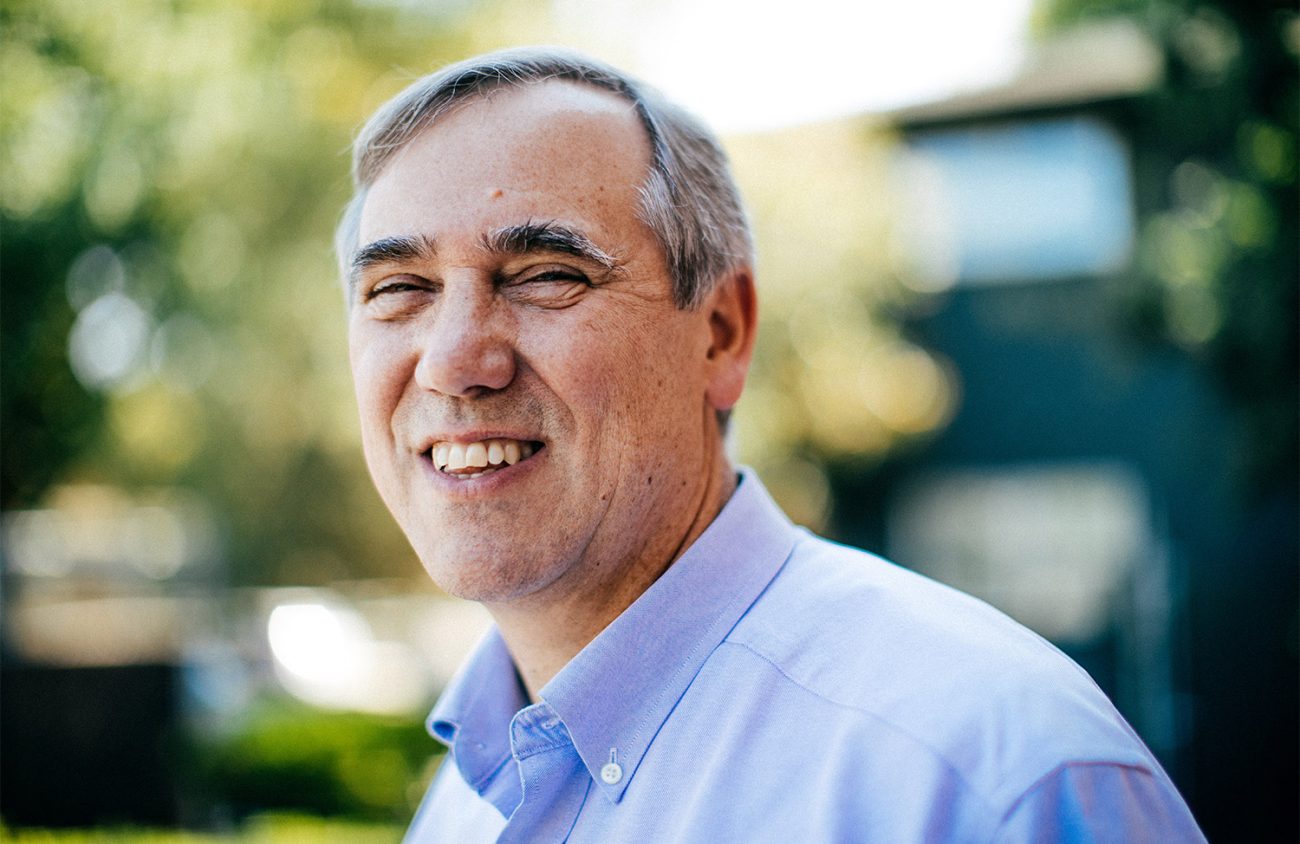It wasn’t the gold mine that’s necessary to run for president or the crowded field of candidates that influenced Sen. Jeff Merkley’s decision not to run for the Oval Office.
With three major crises facing the country, he says he can be most effective by running for re-election in the Senate and provide strong leadership there. That way, he can work to restore the Senate as a functioning legislative body. Merkley discussed his decision in a March 5 conference call with Oregon media after announcing his decision not to run via video earlier in the day.
“I believe that the experience I have in the Senate, the early experience I had in life seeing how the Senate operated in the 1970s and 1980s when it was an effective legislative body, that I can do more to help address these issues by serving in the Senate,” he says. “That’s the roots of the decision-making process I’ve been going through.”
He says after spending 2018 talking with people throughout the U.S., he sees three challenges that the U.S. faces.
The first is the fundamental corruption of the U.S. democratic system. This includes dark money and voter suppression. Merkley says to look at Republican priorities in 2017 when they focused on gutting health care and give tax breaks to the wealthiest Americans.
“I’ve held a lot of town halls. And no one has said, ‘I have this great idea: Let’s raid the U.S. Treasury,'” he says about the Republican tax reform.
Instead, he says he’s heard people in the U.S. want to see investments in the “fundamentals.” These fundamentals are health care, housing, infrastructure and living wage jobs. The fact that there isn’t government investment in these fundamentals is bringing about another crisis, he adds.
“If we are looking to challenges families face, the stresses they face,” he says, “They’ll bring up one of those four fundamentals.”
The third issue the U.S. faces is a climate crisis, he says.
The first time he worked in the Senate, he says it was rare to use a supermajority requirement, a procedure to end legislative discussion that has prolonged due to a filibuster.
The supermajority “has turned the Senate into, not into George Washington’s ‘apocryphal’ cooling saucer,” he says. “What we now have is a Senate that is in a deep freeze.”
Merkley says he’s put forth a bill that would establish a 100-day process for executive nominees so anyone considered won’t be tied up for 200, 300 days.
“We spend so much time on nominations, it wipes out the time to be a legislative body,” he says. “I’m going to be deeply engaged in the conversation in how to make the Senate work.”
In 2016, Merkley endorsed Sen. Bernie Sanders for president. He tells Eugene Weekly he hasn’t made a decision about the current large pool of hopeful candidates. As the presidential campaign goes on, he’ll observe candidates’ character, leadership skills and plans to address three crises.
“I will want to see — for anyone I’d even consider supporting — a significant, serious plan to take on those three issues just as a starting point,” he says.
Merkley’s early morning presidential update was the “No” answer to the question that many Oregonians have been wondering ever since he became viral on social media when he visited a Texas detention facility.
